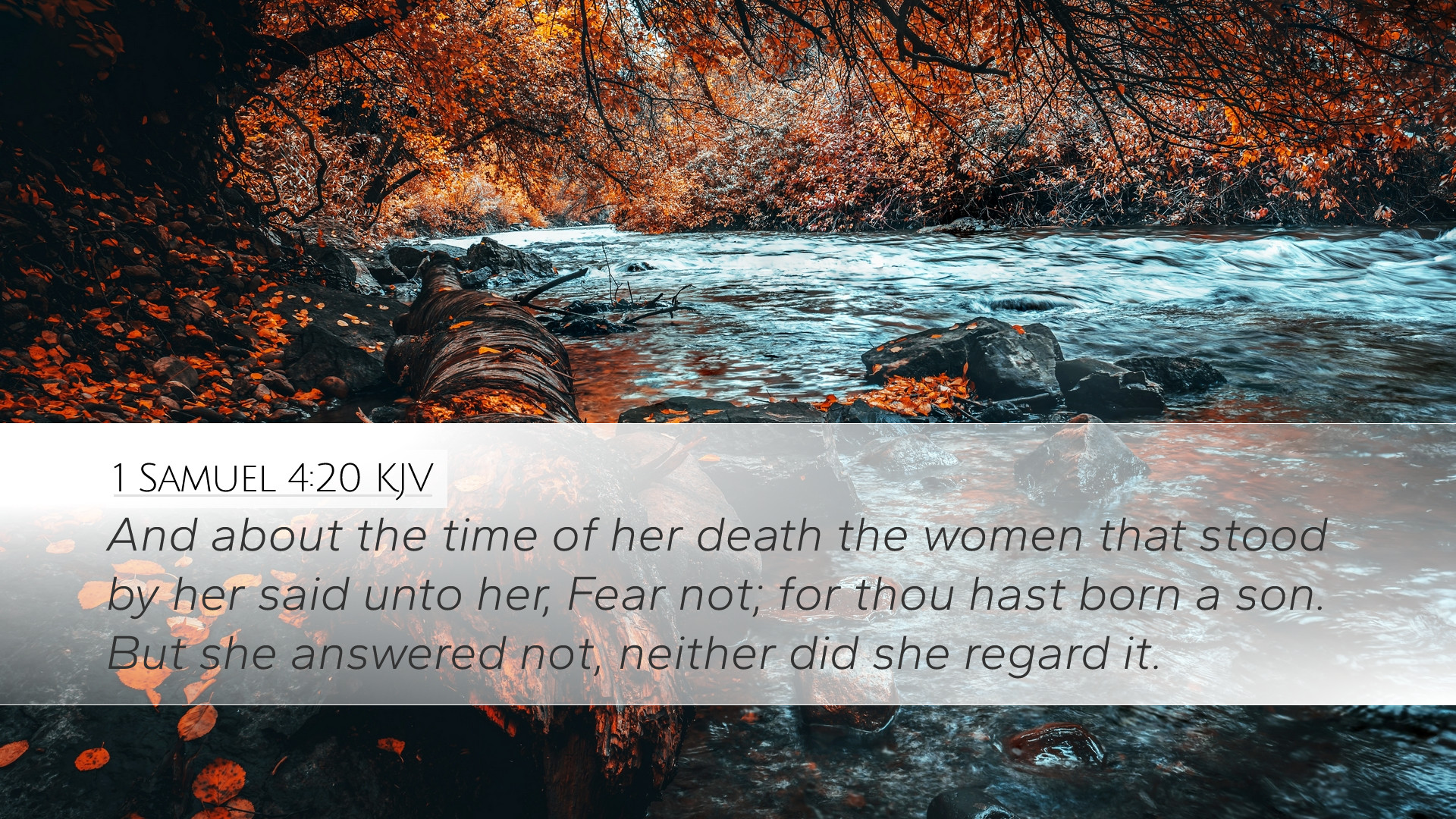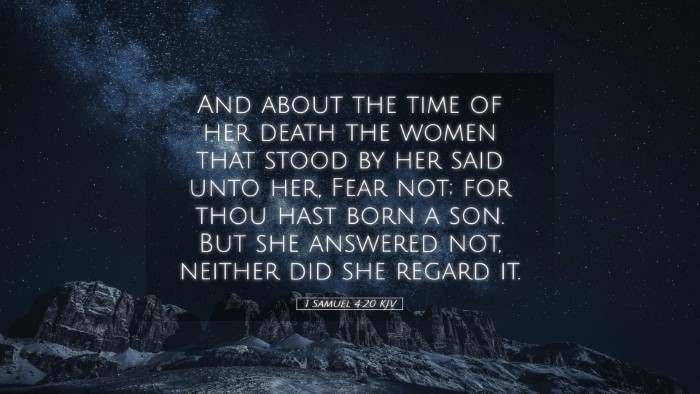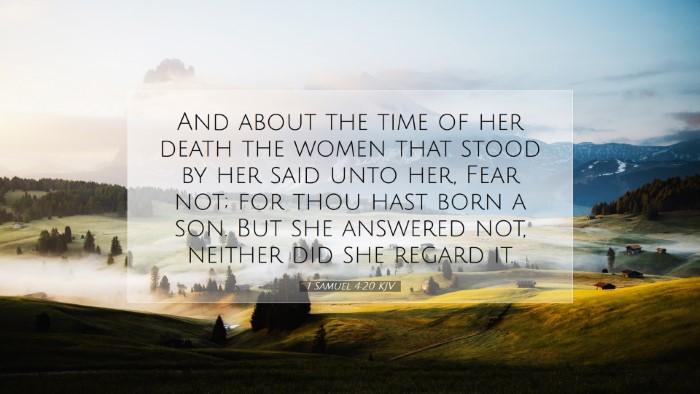Commentary on 1 Samuel 4:20
1 Samuel 4:20 reads: "And about the time of her death the women that stood by her said unto her, Fear not; for thou hast born a son. But she answered not, neither did she regard it." This verse encapsulates a moment of profound significance and tragedy, encapsulating themes of hope, loss, and the heavy weight of circumstances.
Context and Background
The events of this chapter take place during a pivotal time in Israel’s history. The Israelites faced the Philistines in battle, and the capture of the Ark of the Covenant marked a spiritual low. Eli, the high priest, receives news of this calamity, leading to a devastating personal loss. His daughter-in-law, Phinehas's wife, gives birth amidst this chaos, which forms the backdrop of our study.
Insights from Matthew Henry
Matthew Henry expounds on the emotional turmoil surrounding the birth and death within this narrative. He emphasizes the juxtaposition of life and death occurring in the same moment:
- Fear and Comfort: The women try to comfort the dying mother by focusing on her son, representing hope, yet her response indicates a deeper despair. Henry suggests that sometimes, the chaos of life can overshadow the glimmers of joy.
- Spiritual Application: Henry notes how the events reflect Israel's spiritual state, where despite the birth of a son, the prevailing sense was loss and grief, indicating their need for redemption.
Contributions from Albert Barnes
Albert Barnes offers a more detailed analysis of the text focusing on the cultural aspects of childbirth:
- Childbirth in Israelite Culture: The birth of a son was traditionally seen as a moment of joy and celebration. However, Barnes points out that in this instance, it was overshadowed by calamity. The societal importance placed on male children underscores the tragedy of this moment.
- The Silence of the Mother: Barnes reflects on the mother’s silence and indifference to the news of her son’s birth. This silence could symbolize her despair and how the tragic circumstances rendered her unable to embrace her child’s life.
Analysis by Adam Clarke
Adam Clarke dives deeper into the emotional landscape of this verse:
- Psychological Trauma: Clarke highlights the psychological impact of rapidly changing circumstances—loss may have paralyzed her spirit. His commentary suggests a modern psychological application: trauma can lead to detachment from reality and inability to celebrate life’s joyful moments.
- Hope in Despair: Despite the tragedy, Clarke alludes to the hope inherent in a new life. The presence of the child, though unacknowledged at that moment, signifies God’s providence even in darkness. The duality of despair and hope offers a profound lesson for believers experiencing personal loss.
Theological Implications
This verse opens up significant theological discussions about God’s presence in moments of despair:
- The Sovereignty of God: The events surrounding this scripture illustrate God's overarching sovereignty. Even in tragedy, the birth of a child can symbolize God’s ongoing plan and purpose.
- Messianic Foreshadowing: Some theologians observe that the birth of Ichabod—which means “the glory has departed”—foreshadows deeper theological implications about the coming Messiah. The cycle of despair will ultimately transition into hope through Christ.
Conclusion
1 Samuel 4:20 serves as a powerful reminder of the human experience's intricate nature, particularly regarding joy and sorrow intertwined. Scholars like Matthew Henry, Albert Barnes, and Adam Clarke unravel the layers of meaning in this text, inviting deeper theological reflection. Pastors and theologians can draw upon these insights in their ministry, utilizing this passage to comfort those grappling with grief while also affirming the profound story of hope that covers the tragedy.


